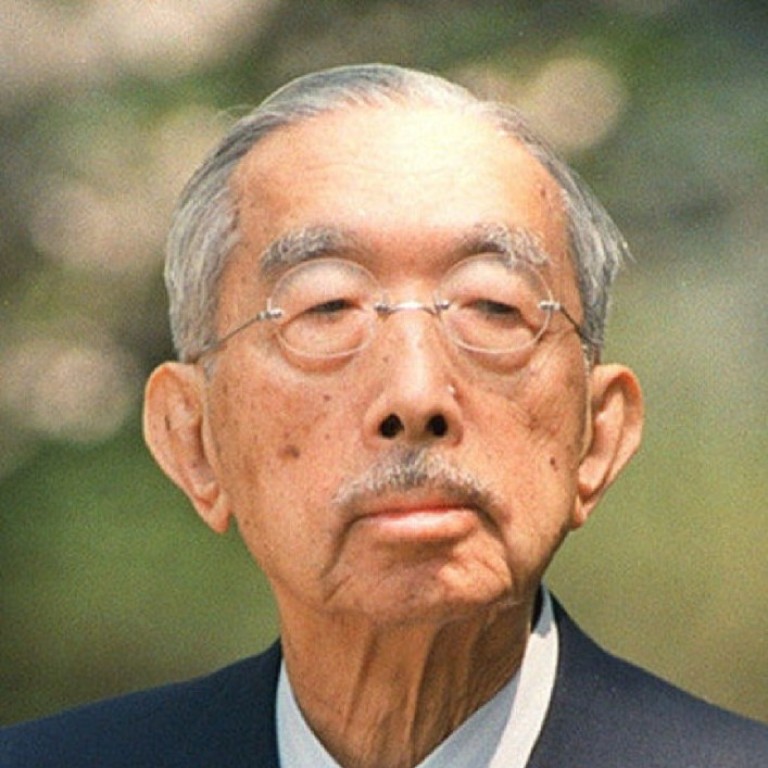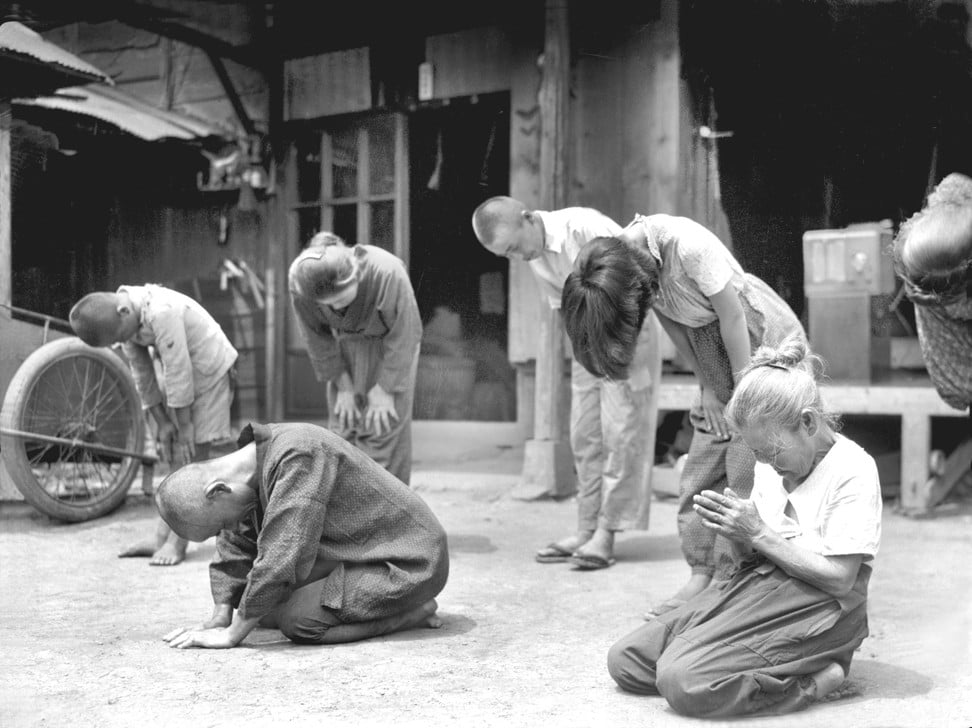
Unearthed poems lay bare shame of Hirohito, Japan’s wartime emperor
- Hundreds of poems written by Emperor Hirohito after the second world war reveal a man haunted by past mistakes
The trove of 252 waka poems, all written in pencil on Imperial Household Agency stationery, were kept after Emperor Hirohito’s death in 1989 by an individual described as being “close” to him. Some had previously made it into print, but 211 have never been seen before.
They were given to the Asahi newspaper by an unidentified source, who had kept them secret for the past three decades.
One, written to mark his 60th birthday, reads in part: “When I look back, many shames.”
In another, penned a decade later, he wrote: “Looking back, I just feel embarrassed.”
US plans to conduct first missile drill near divisive Okinawa base, countering China’s ballistic weapons
A later composition, written just months before his death for a memorial service marking the 43rd anniversary of the war’s end, reads: “How sad, thinking, After the war, offering, prayers frequently.”
Following the end of the war, Hirohito was largely portrayed by Allied occupation forces as a powerless figurehead – separated from the decision-making of his hawkish military government.

Historians, however, are divided on the emperor’s culpability. Some have stated that he and at least six other members of the extended royal family could have faced trial for war crimes. There is evidence that he personally approved the use of chemical weapons against the Chinese.
While regent to the crown, Hirohito was promoted to the rank of lieutenant colonel in the army in 1923 and captain in the Imperial Japanese Navy two years later. The early years after his enthronement in December 1926 saw the military take a firmer grip on the government, including an attempted military coup in February 1936 by junior army officers.
Emotions run high as Japan’s Emperor Akihito delivers final New Year address
Others have argued that it was his ministers – most of whom were military men – who really pulled the levers of power, convincing the emperor that the Allies could be defeated with a series of decisive attacks. Soon after December 1941’s victories against the Allies, the tide of the war began to turn – although the emperor still clung to the idea of a tennozan, or “great victory,” as late as February 1945.
Even after Nazi Germany had capitulated and the war was all but lost, Hirohito rejected the terms of the surrender laid out by the United States, Britain and China. After the dropping of the atomic bombs on Hiroshima and Nagasaki in 1945, the emperor called on his citizens to “endure the unendurable” because the “war situation has developed not necessarily to Japan’s advantage.”

